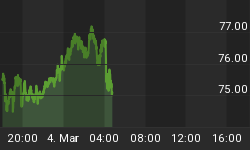Northern Rock, Countrywide, Sentinel, and other have gotten themselves into a big mess by using short term borrowing to make long term loan commitments.
- Sentinel went bankrupt in a week on a huge duration mismatch. See Duration Mismatch to Bankruptcy (in one week flat).
- There was a Mad Dash For Cash at Countrywide (and Countrywide still needs cash infusion to stay afloat).
- Northern Rock is currently suffering form its own bout of cash withdrawals as noted in Crisis at Northern Rock Comes to a Head.
As long as asset prices rise, then barring unusual jumps in interest rates, things tend to work out well for lenders, until things finally blow sky high.
There was an interesting article by the BBC last Thursday called Savings rates hit six-year high.
For the first time in six years, it is now possible to earn interest on your savings of 7%. The Stroud and Swindon building society has launched a one-year investment bond offering 7.05%. And the Standard Life bank is also offering a similar deal at 7%, although for just six months.
It's pretty hard to make any money when you have to pay 7% to attract deposits while making long term mortgage commitments at lesser rates. In fact, coupled with declining property values it is a recipe for a major disaster.
And it's not just Northern Rock that has problems either. The BBC is also reporting mortgage lender Paragon Group slumped 26% as fears deepened over the ability of banks to finance their loans.
Investors rushed to cash in their Paragon shares after the Bank of England agreed to provide emergency funding to rival Northern Rock. The Newcastle-based bank also warned that the "severe credit squeeze" would hit 2007 profits.
Analysts said that there was growing suspicion of companies that relied heavily on the money markets to finance their businesses.
There is absolutely nothing to be gained by staying at Northern Rock, and perhaps a lot to lose. Leaving Northern Rock should be an easy decision. It will be interesting to see if Northern Rock is forced to offer well above market rates to attract capital. It will also be interesting to see whether or not it works. But if I lived in the UK, I would vote with my feet unless the BOE guaranteed 100% of the deposits at a superior premium to other bank rates. If the BOE does not do that (and it should not do that), then any thinking person should pull all their cash out of Northern Rock ASAP.
Growing Suspicion
Get used to growing suspicion because suspicion has only one way to grow and that is up. Suspicion is a marked change in investor as well as borrower psychology, and it is of paramount importance.
Those who think earnings drive the market are mistaken (at least in the short term). Confidence drives the market. And overconfidence sends the market soaring while suspicion and mistrust tend to do the opposite.
Shattered Confidence
But concern is one thing, suspicion is another, and shattered confidence is yet a third.
Look at the U.S. housing market for an example of shattered confidence. Because of shattered confidence it may be years before the market comes back. Based on fundamentals it should never have gotten as high as it did in the first place. But that what overconfidence does.
We are now somewhere between suspicion and shattered confidence on Moodys, Fitch and the S&P (the big three rating companies). The BBC is reporting UK chancellor Alistair Darling censures rating agencies.
UK chancellor Alistair Darling has joined growing calls for a probe into the role that credit agencies have played in the world financial crisis. Mr Darling called for "international action" to review the regulation of the agencies and banking systems.
President of the European Central Bank, Jean-Claude Trichet, said that lessons needed to be learned from the fact that the fees of the credit rating agencies were paid by the very financial institutions whose bonds they are assessing. "The fact that conflict of interest might appear is something we must reflect upon, as is the fact that we have very few credit rating agencies at a global level," Mr Trichet said.
It's kind of hard to buy a bond of a company when you don't trust those rating the debt. For more on the fiasco at ratings companies please consider Fitch Discloses Its Fatally Flawed Rating Model.
One ripple causes another causes another causes another. I talked about the ripple theory last weekend in Economic Ripple Effect vs. Housing Containment Theory. Shattered confidence is yet another ripple to consider. But it's not just a U.K. thing or a U.S. thing. Shattered Confidence is starting to be a global thing. And confidence once lost is not easily regained.















